A Good Read!
It is so good to see how embedded our whole school reading agenda is across all year groups and wonderful to see so many students choosing books for a variety of purposes whether...
Filter by Category
Filter by Author


























































































































































































It is so good to see how embedded our whole school reading agenda is across all year groups and wonderful to see so many students choosing books for a variety of purposes whether...
Posted by Jeremy Turner
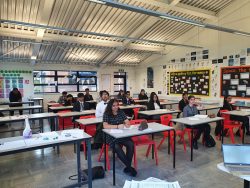
Most adverse cardiac (heart) events occur in the home. Do you know where the closest defibrillator is to your home? Could you restart someone’s heart? This Wednesday, sixteen of...
Posted by Damien O'Brien

Dear students, parents and carers, Last week’s STEM Challenge was completed by Seth Freeman and you can see the results of the foil boat he made in the video below! Well...
Posted by Suresh Varsani
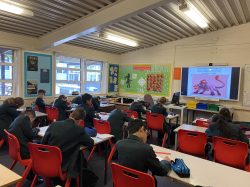
It was a real privilege to spend time with Miss Denmark’s Year 7 English group on Wednesday of this week and see their imagination and creative ideas come to the fore within the...
Posted by Jeremy Turner
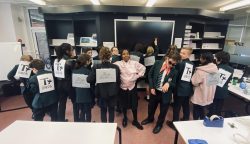
During the week leading up to the 26th September, the European Day of Languages, students across the school celebrated the rich linguistic diversity of Europe, which comprises 200...
Posted by Hilarie Charles
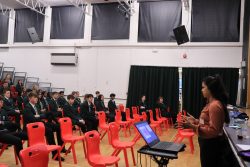
We were delighted to welcome Tricha Seecharran from CXK (Apprenticeship Support and Knowledge for Schools) to start off Friday’s enrichment day. Trisha spoke about Apprenticeships...
Posted by Di Mcildowie

Posted by Danielle Bowe

Over the last two weeks we have been busy auditioning students for our exciting school production this year – School Of Rock!!!. To date we have auditioned years 7 and 8. By...
Posted by Greg Knowles

Posted by James Felix
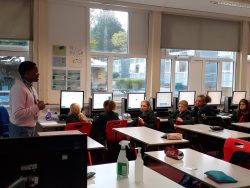
Year 7 Enrichment Day provided an opportunity for our students to study ICT. They were given the chance to learn about Google Classrooms and to apply this in practice developing...
Posted by Claire Till
Most adverse cardiac (heart) events occur in the home. Do you know where the closest defibrillator is to your home?
Could you restart someone’s heart?
This Wednesday, sixteen of our Year 12 scientists were treated to a fantastic online conference entitled ‘Your Heart Hospital Patient’ just ahead of ‘Restart A Heart Day’, to take place on Friday 16th October 2020. Organised by Dr Miles Dalby, working with the Royal Brompton and Harefield Hospitals NHS Foundation Trust, he and the other presenters were highly experienced leaders in the field of Cardiology, and the conference was packed with a myriad of talks and activities that really benefited us in carving our future medical careers.
In addition, it provided each of the students with a valuable and eye-opening insight into the importance of the roles and responsibilities that not only healthcare professionals hold but the responsibilities that we, as humans, must strive to achieve, such as the messages that are reinforced by the ‘Restart A Heart Day’.
Being very different to the previous visit to Harefield Hospital in 2019, the online conference was filled with reminders of the issues that the current COVID restrictions are presenting us all constantly and highlighted the vital adaptations made by NHS during these different and challenging times.
The day opened with an introduction by the loquacious Dr Dalby, who went on to enrich us with knowledge of the difference between heart attacks and cardiac arrests, their prevention and emergency treatment. We also learnt about the riveting history of the Harefield Hospital (one of the largest specialist heart and lung centres in Europe) and the significant role it played during the Second World War as a hospital for wounded Australian soldiers.
This was followed by Professor William Toff emphasising the importance as to why it is vital that the general public are aware of how to perform CPR, comfortable with it and how to safely use a defibrillator, whilst urging us to spread the message to our family and friends. Would you be someone to rise to the challenge when needed? I can speak for many by saying how shocked I was to become aware of how crucial it is to know how to perform CPR or use a defibrillator as the number of people with cardiac arrests is equivalent to a passenger plane crashing every 10 days, with a less than 1 in 10 chance of survival. And that 80% of cardiac arrests occur at home!
When you come across an unconscious person:
Remember this as DR’S ABC.
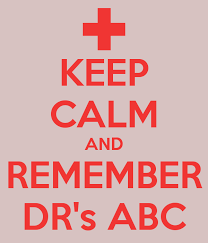
The AED may be the lifesaver. For every minute that passes, the probability of survival decreases by 10%, so just knowing how to perform this is enough to potentially save a life. Evidence suggests that early education will significantly improve outcomes, and by June 2020, it is expected that it is expected to be on the school curriculum.
Dr Mahmoud Barbir, Consultant Cardiologist, provided a deeper understanding of how the heart works, linking it to the study of the heart the A-level Biologists would soon come across in their syllabus. It was nothing short of astonishing as we learnt about the sheer intricacy of the complex human heart.
Professor Simon Ray from Wythenshawe Hospital, Manchester, who has been an Honorary Professor of Cardiology since 2011, spoke about taking up training, working and the use of simulators to optimise practice.
Dr Rebecca Lane and Dr Shelley Rahman expanded on the topic of heart rhythm problems, heart valve problems and the treatment needed, looking through a scientific lens, whilst also providing an overview on the issues created through ethical matters, such as mechanical vs artificial replacements.
We, the students, had an opportunity to ask any questions they had throughout the conference and overall were provided with an experience that was, to say the least, captivating and insightful. From learning about the structure, function and problems associated with one of our most valued organs, the heart, to being shown the importance of learning CPR, it all seamlessly linked into the importance of ‘Restart a Heart Day’ this Friday as we urge all those who can to take part. Your training could be needed at any time…
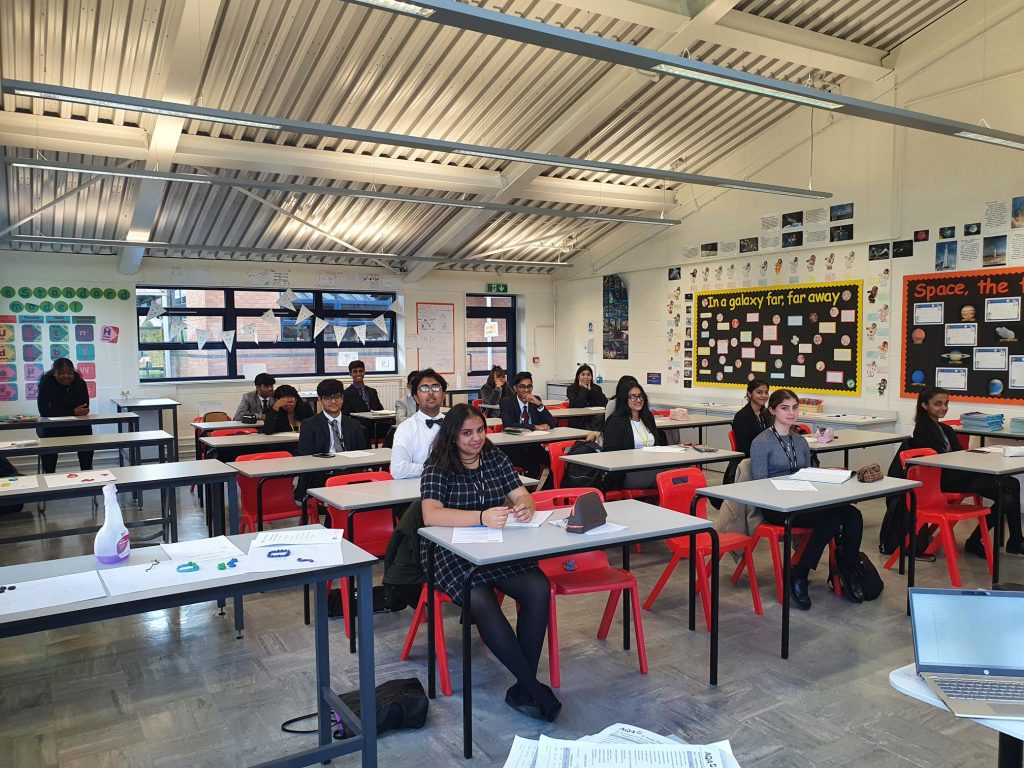
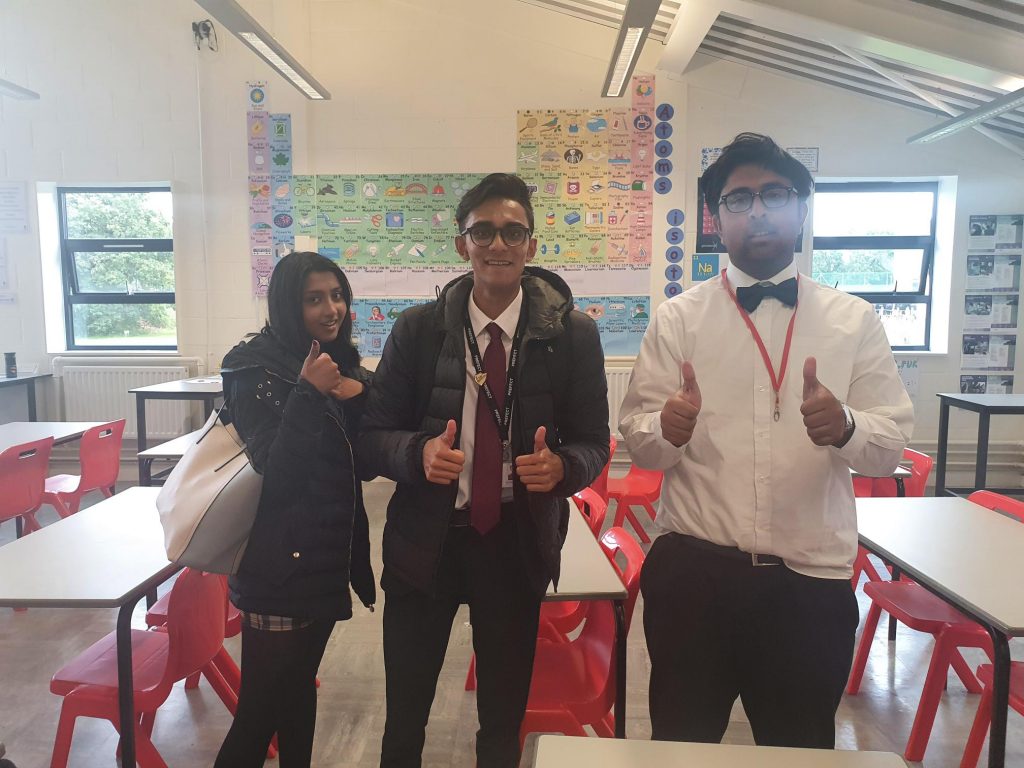
Our day concluded with us being given further explanations and the opportunity to ask questions of Mr O’Brien, in order that we could fill some gaps in our understanding.
We are very thankful that Mr O’Brien provided us with the opportunity to join this conference, which really helped many of us carve and fine-tune our medical interests and potential medical careers. Thank you also to Miss Booth, who selflessly gave up her room for us all!

Written by Bhuvan Bhanderi 12M
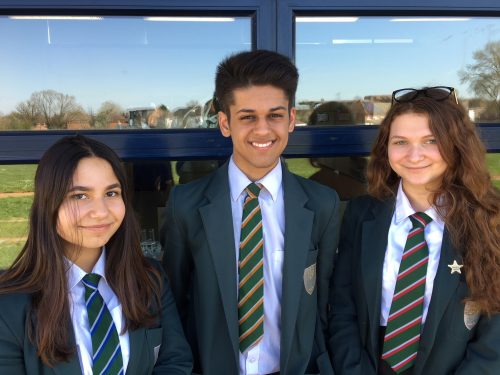
Every alternate day over Easter Mr Fisher set new SAM Learning Revision and Test tasks, feeding back with group e-mail updates. Revision tasks set included such key topics as...
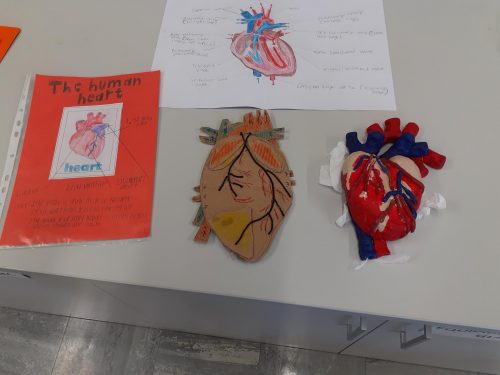
Embedding student engagement in science one year 7 class had an open learning activity to investigate the ‘big idea’ of the human heart. Embedding a positive attitude...